Positive Health for Animals
Table of Contents
See also: www.naturalfeeding.co.uk
Animals want to be healthy and they have a very healthy attitude to life. This does not mean that they cannot fall prey to illness, if we are not watchful throughout their lives. Their unconditional love of their human companions also brings threat of disease. We need constantly to review diet, lifestyle and management issues, that may cause or predispose to illness. Positive health involves pro-actively pursuing healthy practices, for any animal, according to its particular needs, in order to encourage sustainable health. In this way, we hope to make disease occurrences far less likely (preventive) and, as an added bonus, easier to deal with, should our charges fall ill or suffer injury.
 Diet
Diet
Every animal's diet be as fresh and varied as possible, within limits set by the natural diet of each species. For instance, dogs need bones and raw meat for healthy teeth and gums, herbivores do not eat animal products, cats need meat. Organic sources are recommended but, for some foods, organic is a must, owing to the way in which modern agriculture operates. The special dietary needs of each species are discussed separately on this site, under the species headings. Food is the raw material for growth and development, for biochemistry and metabolism, for healing and regeneration and for normal activity. Use poor materials and the structure and function will suffer. For production (farm) animals, the balanced supply of nutrients is critical, to maintain health and yield. Their metabolism is on a ‘knife-edge’, from which they can very rapidly fall if each nutrient is not closely examined.
Immune system
The immune system is, broadly speaking, that which repels invasion by infective organisms and which keeps the body on an even keel. Stress it or damage it and it will soon allow disease. The procedure of vaccination is the only intentional measure, that impinges on immune integrity. For this reason, there is a special paper written on this topic, within this website.
Lifestyle
Some animals work for a ‘living’, some play, some just live. In each case, there are lifestyle factors which can impinge on health. Horses require saddling, tack and shoes of optimum quality and fit, or they soon become damaged and pathology sets in. Spavins, Navicular and back problems are just a few of the products of mistakes in this regard. Dogs require proper exercise, without the sort of play which can be damaging. For instance, sticks should never be thrown for them, since terrible injuries can and do occur. Ball play can lead to exhaustion, heat stroke, heart disease and back injury, if ‘overdone’ or if the dog is too enthusiastic. Puppies should not be over-exerted or over-fed when young, since that can lead to developmental problems. Farm animals must not be overcrowded or put in poorly-ventilated buildings. Their quarters should be kept clean and well-bedded. Caged animals should be given as much freedom as possible, outside the cage, with proper bedding and an enriched environment when in the cage.
Breeding
It is strongly advised that you don’t risk breeding your animal, except under very special circumstances. The standard of care required to do it properly and the risk of health and welfare problems are each very high. Besides that, especially in the case of dogs and cats, there are many unwanted strays and homeless individuals, who can be given homes, rather than bringing more into the world for our pleasure or financial gain.
Attention
Animals are not part-time hobbies; they are a full-time commitment. Signs of health must be checked daily, with proper attention to cleanliness, bedding, exercise, food, water etc., as appropriate to the animal. If children are given animals, adults must guide their children in the proper path of commitment, care and respect. Do not buy animals as gifts, unless you know for certain that they are going to a properly committed and caring environment. We do not ‘own’ animals, we share our existence with them, despite the legal status of ‘ownership’ conferred upon us by UK law. Animals are not our playthings or our status symbols. We owe them our respect and our commitment, if we take them on.
Advice
The AVMC is willing to offer clients holistic advice on any specific aspect of this entire subject.
Main Treatments offered (see Therapies):
- Homeopathic treatment
- Acupuncture treatment
- Herbal treatment (Phytotherapy)
- Aromatherapy treatment
- Chiropractic treatment
- Nutritional advice – Feeding advice
- LASER treatment
- Ultrasound treatment
- Back manipulation – Back treatment
- Bach Flowers
- Holistic medicine – Holistic veterinary medicine
- Flower Essences
- Tissue Salts
- Holistic therapy – Holistic treatment – Holistic care
- Holistic advice
- Anthroposophical medicines – Anthroposophy
- Natural medicine – Alternative medicine – complimentary medicine
- CAM – CAVM
- Integrated medicine – Integrative medicine
- Natural Feeding – Natural Diet
These approaches represent a philosophy that is alternative to the current conventional norm but the use of alternative therapies does not do away with the need for a thorough examination and assessment. Nor does it preclude the use of modern diagnostic techniques where necessary. A holistic vet will take into account all these things, in addition to closely scrutinizing lifestyle, diet, environment, riding, tack, shoeing, grazing, stabling, management etc., depending upon the species.
| Homeopathy | Acupuncture | Herbs | Chiropractic | Natural Feeding |
